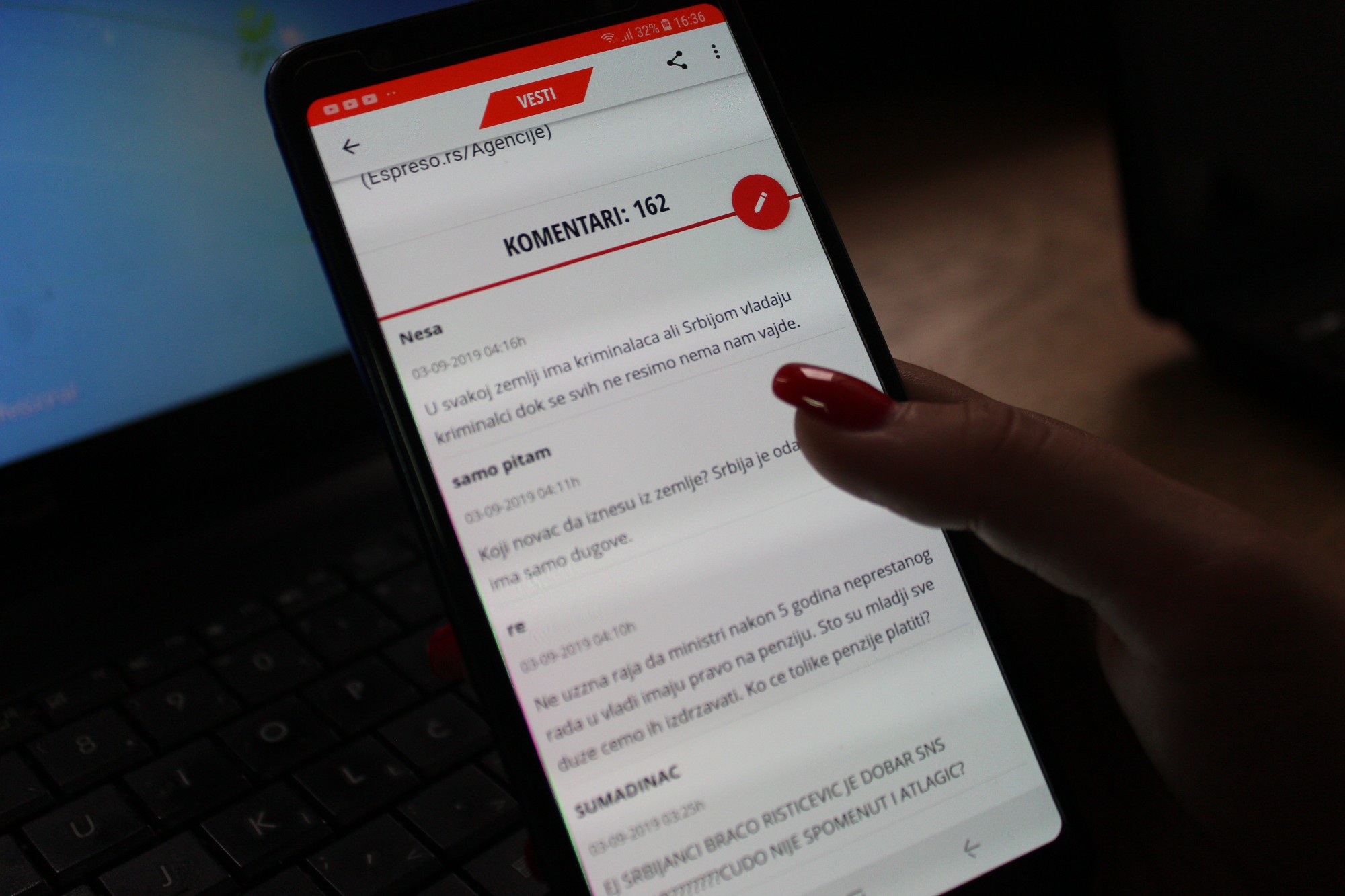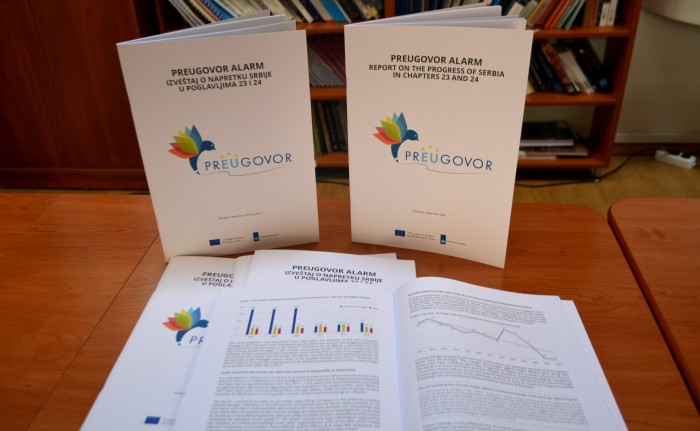By: Anđela Milivojević, Milica Šarić
Activists of the ruling party have had access to the Kurir and Espreso websites, where they could leave a large number of pluses of minuses on existing comments by readers, shows CINS’ analysis of the code of the VotR2 app, which the party’s “Internet team” has been using. In that way the activists, also known as bots, according to instructions received in advance, awarded positive or negative marks to the comments published by the two media, which in the case of the Južne Vesti website they used to deal with criticism aimed at the Serbian Progressive Party and Serbian President Aleksandar Vučić. Through that influence they create a false public image, CINS’ interlocutors say.
With the help of several experts, CINS analyzed the code and found data on an IP address under the number 77.46.148.99. A checkup of IP address ownership on any publicly available website (such as whois.domaintools.com) shows that its owner is the Serbian Progressive Party. The party registered this IP address in March 2016 at the address of the party headquarters, Palmira Toljatija 5 in Belgrade’s New Belgrade municipality.
The aim of leaving comments under news and voting for them is to get access to potential voters through the vote of “a neutral fellow citizen,” says Nemanja Nenadić of Transparency Serbia.
According to experts, for the app to access the Kurir and Espreso websites in this way, the media had to give access to the Serbian Progressive Party, or for someone to hack their mobile apps. The third option is insufficient protection.
Tanja Maksić, Vice President of the Association of Online Media (AOM), told CINS that if the media themselves had allowed access to the app, that was “completely unethical” and “unacceptable.”
Kurir and Espreso are part of Adria Media Group, one of the largest media groups in the Balkans. The Group was owned by businessman Aleksandar Rodić until January 2019, after which it was taken over by Igor Žeželj, the head of well-known website Mondo.
Nemanja Nenadić says that it is important for the media to prevent further access to comments, if they were hacked, otherwise their behavior might be interpreted as support to a political option. On the other hand, if the media allowed the Serbian Progressive Party to vote in this way, that would be “a special form of free service which would have to be reported as a free service, as a contribution to party funding.”
You can read the whole story on CINS.rs.
The text was created within the project “Nadzor javnih politika: prEUgovor prati reforme u poglavljima 23 i 24” supported by the European Union. The content of the text is sole responsibility of the author and does not necessarily reflect positions of the European Union.



